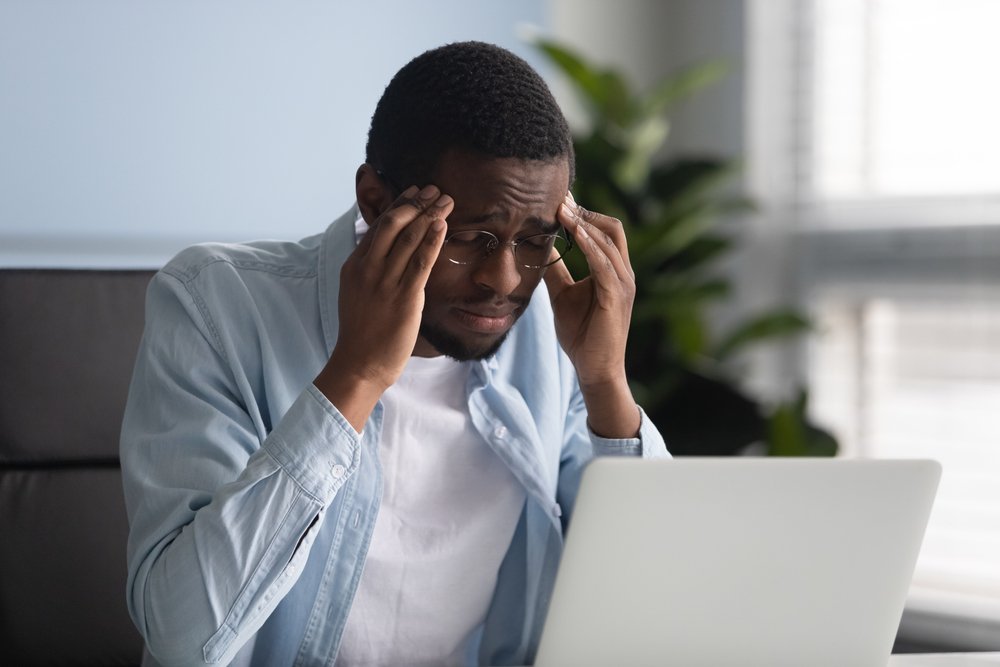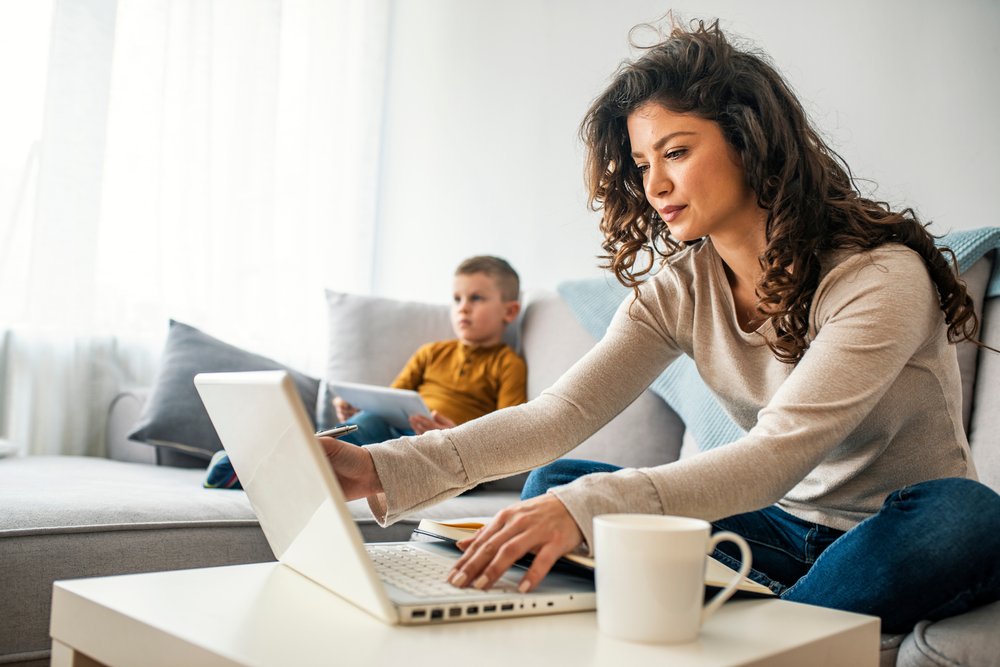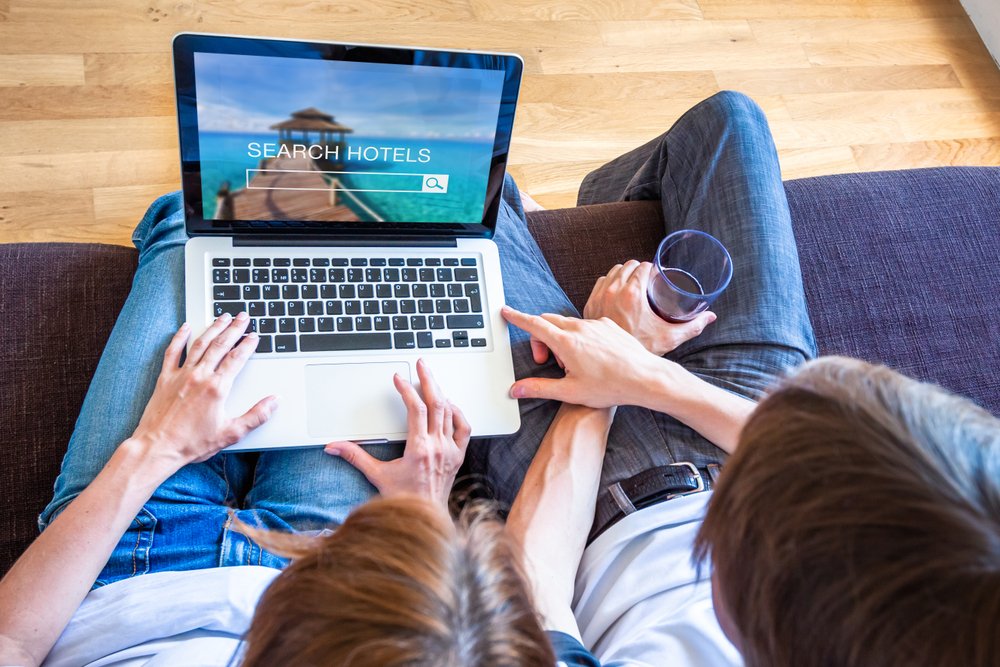We Are Living in an Age of Anxiety...
To say that we are navigating an uncertain world is a huge understatement. The pandemic, the economy, the American election, the future of our great industry — are all causing substantial confusion, anxiety, and stress. While we are all focused on figuring out what might happen next and how to deal with it, one issue that I fear we are not paying enough attention to is mental health. Whether you are considering your workforce, your business partners, or your clients, emotional and psychological wellness is at risk.
 Studies are showing that the pandemic is having broad psychological repercussions. In a survey by the Kaiser Family Foundation in mid-July, 53% of U.S. adults reported that their mental health has been negatively impacted due to worry and stress over the coronavirus — up significantly from 32% in March. Specific effects include difficulty sleeping (36%) or eating (32%), increases in alcohol consumption or substance use (12%), and worsening chronic conditions (12%). Social isolation, working from home and home schooling, and worries about job loss or economic insecurity are all contributing to this widespread malaise.
Studies are showing that the pandemic is having broad psychological repercussions. In a survey by the Kaiser Family Foundation in mid-July, 53% of U.S. adults reported that their mental health has been negatively impacted due to worry and stress over the coronavirus — up significantly from 32% in March. Specific effects include difficulty sleeping (36%) or eating (32%), increases in alcohol consumption or substance use (12%), and worsening chronic conditions (12%). Social isolation, working from home and home schooling, and worries about job loss or economic insecurity are all contributing to this widespread malaise.
At the same time, the bad news for the travel industry keeps coming. We are experiencing more layoffs as furloughs and government financial support come to an end in many countries, and companies are realizing that the recovery will be much slower and more limited than what most of us imagined or planned for. Each week we hear more staggering statistics: drastic drops in air traffic and hotel occupancy, layoffs and furloughs from companies like United Airlines, Disney, Marriott, and more — not to mention the hundreds of smaller companies facing the same issues. Recent research by the World Travel & Tourism Council has suggested the U.S. will lose $155 billion in revenue from international tourism this year. As of early September, nearly 60% of hotel rooms in Manhattan had been taken out of inventory, PwC reports, with approximately 2,700 rooms likely to close permanently.
But as we grapple with uncertainty in our role as operators of businesses, we must also address how it affects us as people. That goes for both our teams and ourselves. The uncertainty can have a grave effect on employees. How many people in tourism and hospitality really believe their job is safe now? Even if they are not immediately affected by the possibility of job losses, many are juggling other major concerns around family life, reduced income, and protecting family members who may be at a higher risk of catching the virus. For many, the biggest issue is child care and the uncertainty around their children’s education.
 Those working virtually have their own set of issues, as they miss collaboration with colleagues and the benefit of working together to solve business issues. While we are told productivity is up, these workers are often working in ill-defined spaces with poor Wi-FI connections and endless family interruptions — not sustainable in the long term. Helping staff feel connected should be a priority.
Those working virtually have their own set of issues, as they miss collaboration with colleagues and the benefit of working together to solve business issues. While we are told productivity is up, these workers are often working in ill-defined spaces with poor Wi-FI connections and endless family interruptions — not sustainable in the long term. Helping staff feel connected should be a priority.
Add up all these pressures and you have a workforce that needs empathy, support, greater understanding, and in some cases, counselling. The emotional toll on families can be enormous. More than ever, industry leaders need to communicate with employees at all levels.
“I’m seeing junior people who have been thrust into new roles that they normally would have grown into organically, or been trained for,” says Cindy Novotny, Managing Partner of Master Connection Associates, one of the leading training and development companies in the luxury hospitality industry. “I’m also seeing GM’s and senior executives who now have to run operations, because they’ve reduced staff. Many of them have taken pay cuts. Everyone’s wondering when the next shoe is going to drop. So there’s stress all over — not only mental stress, but the physical stress of just working your tail off.”
Many travel clients are dealing with anxiety-producing issues of their own, ranging from job instability and working from home to protecting their families and dealing with an upside-down education system. For many of them, the one antidote to stress and anxiety is exactly the thing they can’t do right now: get away.
According to a recent Trendex report from American Express, U.S. consumers are missing travel so deeply that it has begun to take an emotional toll. Nearly half of respondents reported that the inability to travel is causing anxiety and stress, and 78% reported travel is one of the activities they are craving most.
Jessica Hall Upchurch, Vice Chair & Sustainability Strategist at Virtuoso, backed up these statistics, saying, “Travel is one of the few things in life with a built-in triple bottom line: the excitement of planning, the thrill of the actual experience, and the enjoyment of lifelong memories. People are missing out on all three, so it’s no wonder that it’s affecting their mental health.”
That said, research shows that the very act of researching and planning a trip can be helpful. Planning generates endorphins that lift spirits and lead to a more positive outlook. A 2014 Cornell University study showed that anticipating an experience (like a trip) can lead to increased happiness — more so than buying material goods. “Consumers derive value from anticipation,” the researchers concluded, because it leads to a feeling of optimism, which we then share with other people. “In a sense, we start to ‘consume’ a trip as soon as we start thinking about it,” Matthew Killingsworth, one of the authors of the Cornell study, told National Geographic. “When we imagine eating gelato in a piazza in Rome or going water skiing with friends we don’t see as much as we’d like, we get to experience a version of those events in our mind.”
So encouraging your clients and customers to think about future trips and even start laying down some plans can help them feel better, and help you and your teams feel better about future bookings. Just remember that consumer confidence is still low. Concerns about what to expect at airports, on-board protocols, what countries are open, logistics around testing and quarantine, what to expect at the destination — all of these questions invoke fear and anxiety. Will I be able to get home easily if I need to? What is the quality of the medical facilities where I am going? Naturally, safety is the top priority for many travelers who, according to the American Express survey, are “willing to pay more for cleanliness and distancing measures.”
Think of these questions as an opportunity for those of us who work in the industry to become confidence builders, anxiety reducers, and well, counselors. Travel advisors and hotel managers should know how to provide answers and inspire confidence and hope. Much of that is knowing how to communicate effectively. “I’m a big proponent of mindfulness, being aware of and attending to our present moment in a non-judgemental way,” says Adam Gonzalez, Ph.D., a clinical psychologist and Director of Behavioral Health at Stony Brook Medical School. “For people providing services, that means actively listening to the other person and being empathic, acknowledging that we don't know what's going to happen and that's scary, versus sugarcoating it. And then looking for ways to inspire hope for the future.”
That idea meshes well with the message that marketers should be honing in on right now: hopefulness and excitement about future trips, whenever they happen (in addition to what I’m sure is your current focus on earning as much revenue as you can right now). “It’s flipping the unknown into a positive message,” says Gonzalez. “We don’t know when you’re going to be able to stay at this hotel or take this vacation, but look at how amazing it’s going to be when you do it.”
 Pent-up demand is hard to measure, but we believe anecdotally that it is there. Many clients would love to travel. Hall Upchurch agrees, “People always knew travel was important, but being denied the gift of exploring the world has made it even more desirable. Travel demand is growing and if we hold on, it will not just recover, but be heightened by a new appreciation for nature, wildlife and the unique cultures awaiting discovery around the world.”
Pent-up demand is hard to measure, but we believe anecdotally that it is there. Many clients would love to travel. Hall Upchurch agrees, “People always knew travel was important, but being denied the gift of exploring the world has made it even more desirable. Travel demand is growing and if we hold on, it will not just recover, but be heightened by a new appreciation for nature, wildlife and the unique cultures awaiting discovery around the world.”
Whether you run a large or a small company, whether you are an owner, senior manager, an employee, a travel advisor or a client, we are all in this together. Everyone has concerns about employment, protecting family members from the virus, juggling household responsibilities and education. It’s a reminder that human connection has never been more important, and that we all need a better understanding of one another. Here are a few ways to create a sense of belonging, protect our colleagues, clients, partners, and ourselves, and ensure that when the recovery comes, no one is left behind...
- Try a shift in perspective. “The inability to travel is really a form of grief — it’s a yearning for something you can’t have right now,” says Gonzalez. ”So just as we have to adapt to the loss of a loved one, we have to adapt to fill that void: Maybe by looking up different destinations and journaling about them, saving articles and pictures, doing virtual travel. Or discovering what you can do in your current environment: If you can’t go to Paris, you can still go to that French restaurant. It’s not perfect, but we can still find joy and excitement in what we’re doing.”
- Offer clients something to look forward to. As noted above, anticipation of a trip is pleasurable in itself. Travel marketers should be messaging their audience about what’s possible in the future, and making it easy for them to start planning. That means being as flexible as possible with schedules, events calendars, cancellation policies and the like: Give them something concrete enough to latch onto, but not so final that they’ll hesitate to book.
- Focus on your personal relationships. "The further away you are from the customer, the more your job will feel transactional and not about contributing to a meaningful relationship,” says Novotny. So dig into the meaning of your job and how it forges interpersonal bonds. She also advises travel industry clients — even those who have lost their jobs — to reach out to their personal contacts and just catch up. “Ask them how they’re doing, if there’s anything you can do for them, or vice versa. Maybe they need advice on homeschooling, or looking for a new job. Maintaining those interpersonal connections is really important to mental health.”
- Practice empathy. Whether you’re a manager, a frontline employee, an independent contractor, an executive, or a travel consumer: Listen to other people’s concerns and anxieties. Acknowledge that things are uncertain right now. Try to provide a sense of optimism and hope without being pollyannaish. “Whether you’ve got kids or not, whether you’re furloughed or still have a job, every one of us has had our lives thrown upside down,” says Novotny. Empathy is especially important between people across a socio-economic divide. Customers shouldn’t assume that a hotel employee is grateful and stress-free because they have a job. Travel advisors shouldn’t assume that a client’s wealth protects them from worry. Everyone has their own cross to bear.
- Be on the lookout for serious mental health issues, and refer those suffering to professionals who can help. There is no shame in seeking counseling to alleviate stress, anxiety, or depression — we are all vulnerable right now. If you see a colleague or client who may be in trouble, speak to them directly or to someone they trust. And keep an eye on yourself. “You need to create what I’d call a ‘psychological board of directors,’ says Novotny. “People you trust to tell you the truth, who can help talk through your issues and you can ask, “What am I good at? What do I need to improve?’ And if you’re really depressed, seek help.”
How about you? Have you been focused on the mental well-being of your employees or clients? Have you developed your own coping mechanisms? I look forward to hearing your thoughts!

Speaking of marketing, I wanted to share this infographic that I think clearly lays out where we are as an industry in dealing with the pandemic. Up until this point, we’ve been in Reaction mode, everything from adjusting our messaging to restructuring our operations and, frankly, figuring out how to cope with all it mentally. But now we need to pivot to a new phase: Reimagine. It’s time to start thinking about what the business will look like in the near future — and then helping both our employees and our clients visualize that. That will help transition us to the Rebuild phase, which I foresee taking the better part of the next two years.
As always, I welcome your thoughts, and remain at your disposal to help figure it all out.

